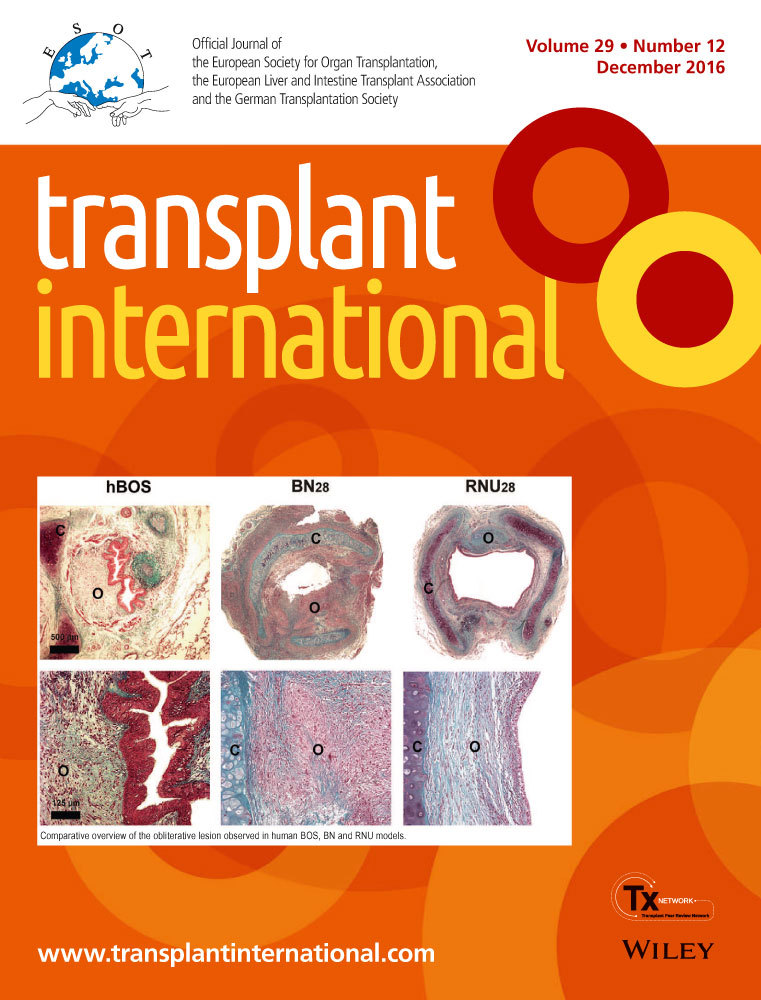Six-year outcomes in broadly HLA-sensitized living donor transplant recipients desensitized with intravenous immunoglobulin and rituximab
Summary
Desensitization with intravenous immunoglobulin (IVIG) and rituximab can improve transplantation rates in broadly sensitized kidney transplant recipients. However, long-term outcomes are lacking. Here we analyze long-term outcomes in living donor kidney transplant recipients desensitized with this regimen and compare them to low-risk recipients. Living donor kidney transplants that took place between July 2006 and December 2010 were considered retrospectively. The primary end point of the study was death-censored allograft survival at last follow-up. Secondary end points included patient survival, incidence of rejection, glomerular filtration rate (GFR), and proteinuria. There were 66 sensitized and 111 low-risk patients included. Average follow-up was 68 months. There was no difference in long-term patient or graft survival. The rate of rejection was similar in the groups with more early rejection in the sensitized group and more late rejection in the low-risk group. There was more antibody-mediated rejection in the sensitized group. Estimated GFR was similar during the follow-up period. Risk factors for rejection included a positive cross-match (HR: 2.4 CI: 1.35–4.40) and age (HR: 0.97 CI: 0.95–0.99). Desensitization with IVIG and rituximab has good long-term results with graft outcomes similar to non-HLA-sensitized patients despite higher immunologic risk.




